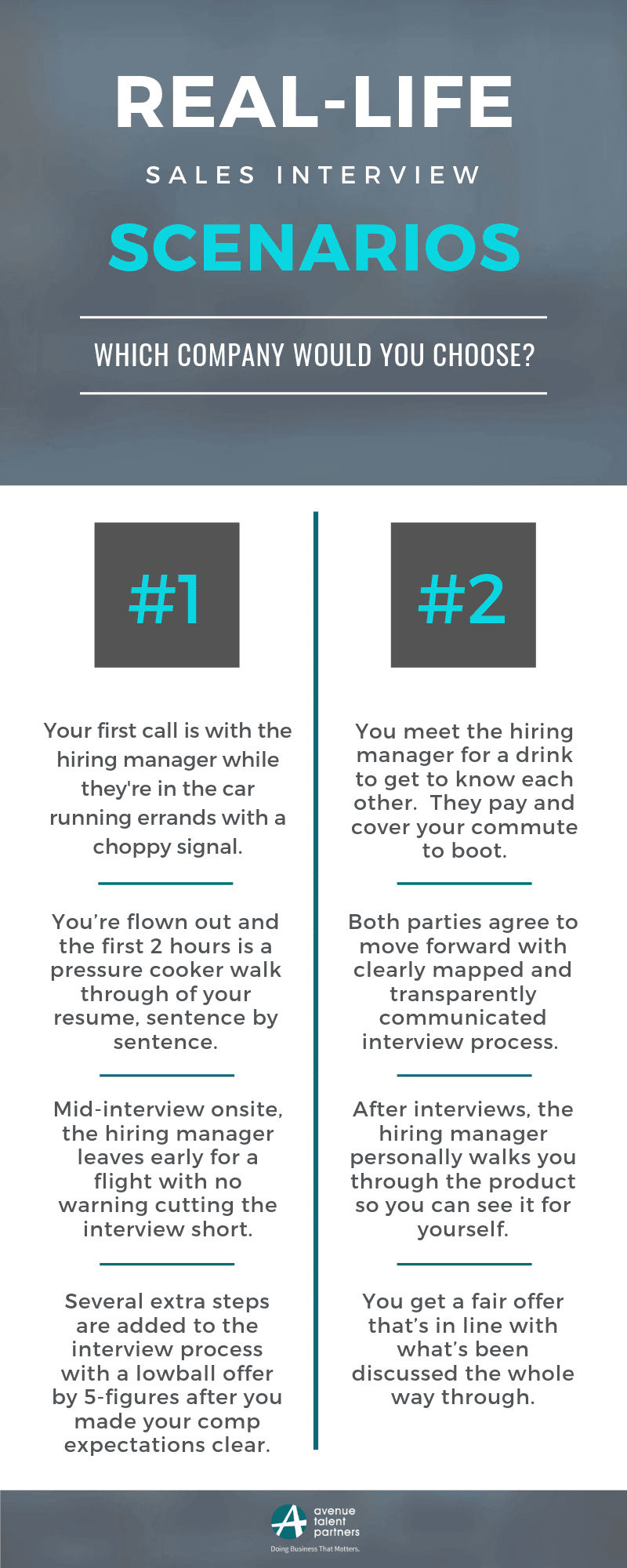
8 qualities of a good company to work for as a salesperson.
There’s a lot of clutter with the sales job market being so strong at the moment. And it’s often hard to tell the seemingly great sounding roles from the legit cherry ones.
I get it… sometimes all you get is 1-2 interviews and a single site visit to determine if the company could be a place where you can grow and thrive!
As a result, I see a lot of salespeople who choose to churn and burn employers in an effort to find the one that works.
While that might work for just “getting a job,” if you want to find a cherry role that will really level-up your career, this is a dangerous game.
It’s much better to know what you’re looking for upfront and not settle until you find it.
To help you with this, I dug into the criteria we use to determine if a business is one that we will work with (we vet our clients just as much as we vet the salespeople we bring their way).
Here are the qualities we’ve found that make a great place to work… and how to determine if they have them throughout the interview process.
1. Collaboration
This is the #1 thing the salespeople (all the way up to sales leadership) we talk to require to make a move to a new company.
And for good reason… modern sales is a team sport!
We’ve found that the best indication of how collaborative the culture really is at a company starts with how they treat you during the interview process.
Do they take a discovery-driven approach to determine whether this is a good fit for you as well as them? Or do they put you through the gauntlet to “get to them?”

Which company feels more collaborative to you?
This difference is crucial. If they’re willing to work with you to find the right solution in interviews, there is a high probability they will work with you like that when you’re on the team as well.
2. Psychological Safety
This is the ultimate indicator of a “collaborative culture.” And it basically means the ability to use your voice without fear of repercussions.
The best places to work celebrate and encourage their people to use their brains and their voice creatively to share their ideas.
It doesn’t mean what is brainstormed will always be used. But it does mean they want to hear what you have to say!
Again, one of the best ways to see if a company lives that out is to look at the way they work with you during the interview process.
-
Do they ask you good questions? Or spend most of the time talking at you?
-
Do they listen to your ideas for mock sales presentations? Do they work with you to develop the presentation?
-
Are they available to answer your questions? Or hard to track down?
These subtle differences will often tell you most of what you need to know.
3. Transparency
We’ve seen it more than we care to admit, but there are a lot of companies out there who will put a good face on to get talented people in the door, only to take the mask off once they are there.
I’ve even had this happen to me as a salesperson.
This is where doing your own thorough discovery work during the interview process is so essential. The deeper you dig and the more specific you get, the more they will have to either “dodge or divulge.”
Note: I’m not suggesting you grill them. I’m simply saying help them get specific about things that will affect your success.
Think about what’s most important to you and the task at hand. Get specific and look for how they answer (or avoid answering) the question:
-
Do they show you the product, warts and all?
-
Are they honest about what they are struggling with and what your challenges will be?
-
Do they tell you about the success of the whole team, not just the top rep?
-
Do they provide you with an opportunity to meet the team, not just the top performer that’s ‘crushing it’?
Dig into the details… how transparent they are with their responses will tell you a lot!
4. Responsive Communication
Much like transparency, the way they communicate with you during the interview process tells you loads about what they are going to be like to work with.
-
Are they responsive?
-
Do they send form emails or personalize things?
-
Do they give you honest feedback to help you improve? Or do they ghost you?
-
Do they communicate how the interview process will unfold and stick to it?
-
Are they on time and committed to the process? Or are they always “busy”?
-
Do they make you feel valued in the way they communicate?
These are all great indicators of what will really happen when you’ve joined them. And it’s more about paying attention to what they do rather than what they say.
5. Realistic Sales Targets
It’s one thing to have the “softer” qualities here. But without targets you can actually achieve, you’ll be left beating your head against wall day in and day out trying to achieve something that isn’t possible.
So before you join a company, it’s important to do your due diligence to understand things like:
-
How are targets set? Who sets them?
-
How often do said targets change?
-
How many of the current salespeople on the team are actually hitting them?
-
When people on the team have struggled to meet the target, how was that handled and why did it happen in the first place?
-
Why for each of the above?
We see a lot of businesses whose boards or leadership team hand them a number that they pulled out of thin air (literally).
Make sure you’re not walking into a situation like that by getting specific on the subject of targets!
6. Strong Product-Market Fit
One of the best indicators of a strong product-market fit is why they are hiring you in the first place.
Are they hiring you because demand is high and they need help to capitalize on the market? This is a good sign.
Additionally, their sales numbers will tell you a lot too:
-
Win rates
-
The average quota attainment of the team
-
Their churn rate
-
How many customers do they really have and how they got them
Keep in mind, it’s one thing if the current sales team is struggling because they don’t have what it takes (hence why they’re hiring you).
It’s another thing altogether if they are struggling because the market doesn’t like the product or the team isn’t iterating to address what the market wants.
That’s something you can’t fix as a salesperson. And trying to do so will only drive you nuts.
Make sure to dig into the reasons why the team is successful or not!
7. A Fair Comp Plan
Too many startups make it way too hard for salespeople to get paid! And far too many others incentivize the wrong behaviors with the way they structure their comp plan.
Simply put, a good comp plan makes it easy to get paid for good work and rewards you for doing more.
That means things like:
-
A plan that incentivizes the right behaviors and rewards you for a job well done
-
Commissions that are easy to calculate… i.e.you don’t need an algorithm to figure it out.
-
They challenge you to be your best and compensate you for overachievement
Dig into the specific structure during interviews together to make sure you’ll be set up for success the right way!
The best companies schedule a specific time to walk through how the plan works, what it takes to hit numbers, and how they’ll help you get there.
8. A Defined Plan for Advancement
This can mean a lot of things. It starts with expectations set in the interview, their onboarding plan, and includes ongoing communication about the path ahead to advance your skills and career.
But the big point here is:
“As they grow, are there defined ways for you to grow as well? And do they care about helping you get there?”
Startups are a dynamic place. So if they don’t have the most rock solid advancement plan, don’t be surprised.
But the more defined it is, the more likely it is that a company you’re interviewing with has their stuff together and you’ll have opportunities to grow with them.
A great example from a client we recently kicked off a search with…
They’re looking to hire a VP of Sales and they said to us “if this person does their job well, we’re prepared to elevate them to co-founder status.”
In an interview, it’s your job to dig into that statement and flush out how.
Final Thoughts.
A business can’t do what it needs to without the people to help build it. So the interview process should be a two-way street, just like your sales process.
You’re the company’s customer and they are yours. And if either one of you makes it about themselves (rather than a mutually beneficial partnership), it all becomes toxic.
Make sure any company you’re considering sees it this way… and shows you that they do by the way they interview you.
It will tell you most of what you need to know about what their culture is really like!
